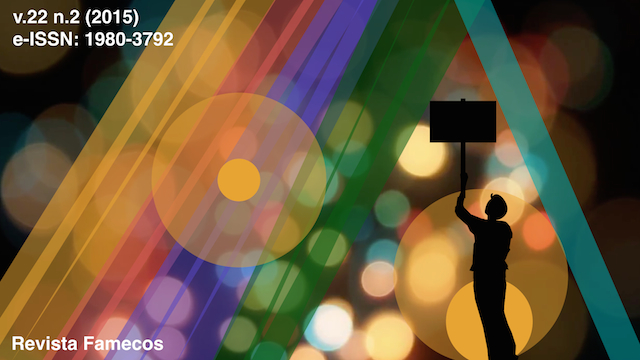e-Representation as political communication: Internet and representative democracy
DOI:
https://doi.org/10.15448/1980-3729.2015.2.19717Keywords:
Internet and Democracy, Internet and Representation, e-RepresentationAbstract
This is a theoretical research that analyzes potential impacts of the Web for political representation in democratic regimes. Hence, the aim of this paper is to discuss a theory about the relations of digital political communication and democratic representation. For this, it will debate the place of political representation in democratic and political theories, with special attention to the most recent literature about the matter, the intersections of political representation and social communication, and the potentialities of the Web for representative practices in democratic regimes. In the end, it suggests that digital initiatives for democratic representation should worry less about establishing interactivity or a more direct communication between representatives and represented, and more about strengthening participation and deliberation in representation on the Internet.Downloads
References
AGGIO, C. Internet, eleições e participação: Questões-chave acerca da participação e do ativismo nos estudos em campanhas online. In: MAIA, R. C. M.; GOMES, W.; MARQUES, F. P. J. A. (orgs.). Internet e participação política no Brasil. Porto Alegre: Sulina, p.175-195, 2011.
BERGER, P. L.; LUCKMANN, T. The Social Construction of Reality: A Treatise in the Sociology of Knowledge. Nova York: Anchor Books, 1967.
BRYANT, J.; OLIVER, M. B. (eds.). Media Effects: Advances in Theory and Research. Nova York: Routledge, 2009.
CAREY, J. Communication as Culture. Nova York: Routledge, 1989.
CASTIGLIONE, D.; WARREN, M. E. Rethinking Democratic Representation: Eight Theoretical Issues. Rethinking Democratic Representation, Centre for the Studies of Democratic Institutions, University of British Columbia, 2006.
COLEMAN, S. New Mediation and Direct Representation: reconceptualizing repre-sentation in the digital age. New Media and Society, vol.7, n.2, p. 177-198, 2005.
COLEMAN, S.; BLUMLER, J. G. The Internet and Democratic Citizenship: The-ory, Practice and Policy. Cambridge: Cambridge University Press, 2010.
CHADWICK, A.; HOWARD, P. N. The Routledge Handbook of Internet and Politics. Nova York: Routledge, 2009.
DAHLGREN, P. The Public Sphere and the Net: Structure, Space, and Communica-tion. In: BENNETT, W. L.; ENTMAN, R. M. Mediated Politics. Cambridge: Cambridge University Press, p. 33-55, 2001.
GARCÊZ, R. L. de O. Lutas por reconhecimento dos surdos e conversação política no Orkut: Quando temas sensíveis definem a trajetória das discussões. In: MAIA, R. C. M.; GOMES, W.; MARQUES, F. P. J. A. (orgs.). Internet e participação política no Brasil. Porto Alegre: Sulina, p. 231-256, 2011.
Downloads
Published
How to Cite
Issue
Section
License
Copyright
The submission of originals to Revista Famecos implies the transfer by the authors of the right for publication. Authors retain copyright and grant the journal right of first publication. If the authors wish to include the same data into another publication, they must cite Revista Famecos as the site of original publication.
Creative Commons License
Except where otherwise specified, material published in this journal is licensed under a Creative Commons Attribution 4.0 International license, which allows unrestricted use, distribution and reproduction in any medium, provided the original publication is correctly cited.






